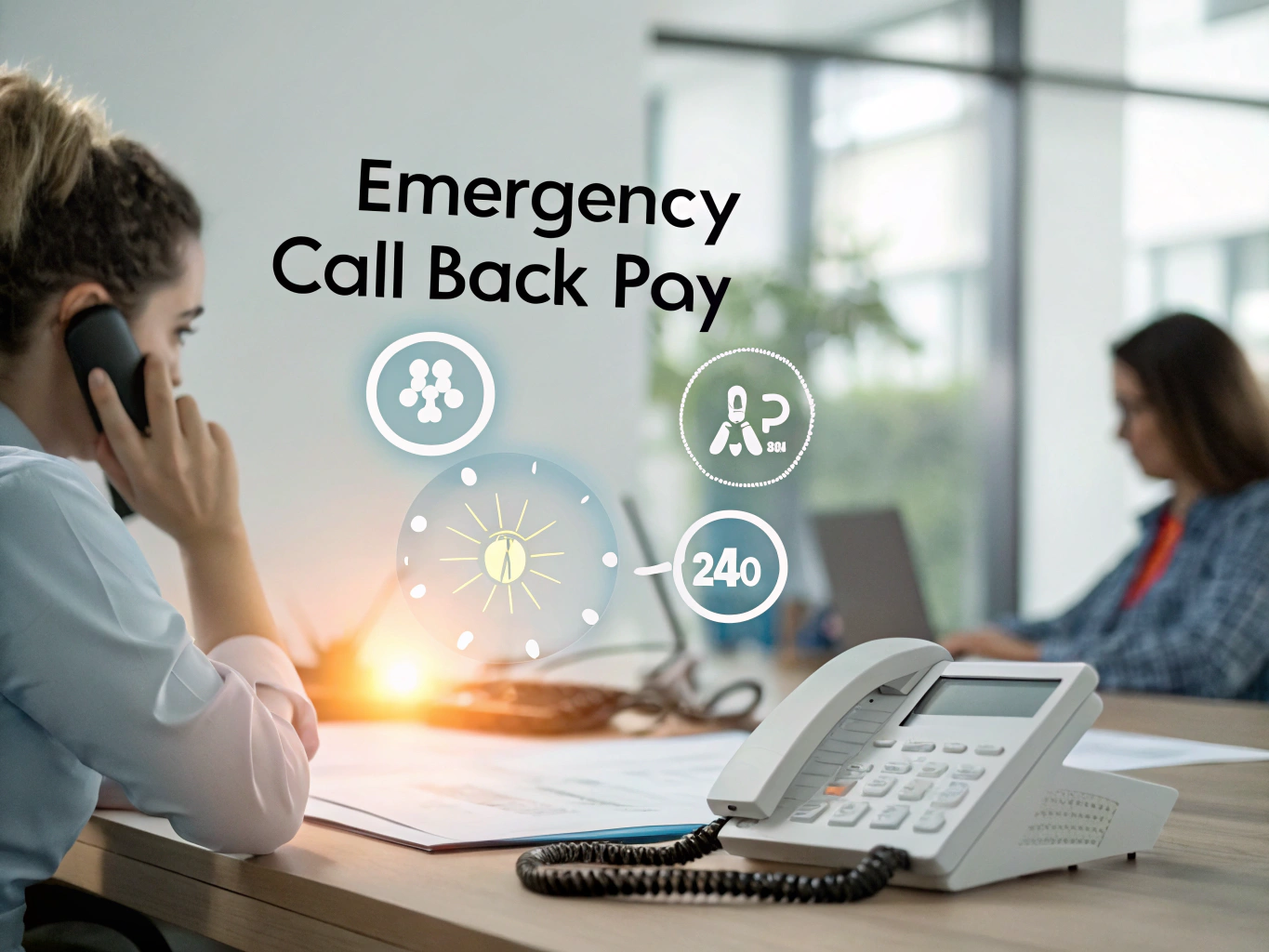Definition
The Call Emergency Call Back Pay Policy is a structured guideline that compensates employees who are required to be available for urgent work needs outside of their regular hours. This policy ensures that employees receive fair pay when they are on-call or called back to work unexpectedly, fostering a sense of security and appreciation for their commitment.
Key Components
This policy encompasses several essential elements that define how employees are compensated and what is expected from them during on-call and call-back situations. Understanding these components can help both HR professionals and employees navigate the policy effectively.
- On-Call Availability: Employees designated as on-call must remain reachable and prepared to respond to emergencies during their assigned hours. For example, if a technician is on-call for a weekend shift, they should have their phone accessible and be ready to act if a crisis arises.
- Compensation Structure: Employees earn a flat rate for the hours they are on-call, plus a premium rate for any call-back hours worked. For instance, if an employee is on-call for 12 hours at a flat rate of $50, and they are called back for two hours of work at a rate of $75 per hour, they will earn a total of $50 plus $150.
- Minimum Call-Back Guarantee: To ensure fairness, employees are often guaranteed a minimum number of paid hours when called back, even if the actual work takes less time. For example, if an employee is called back but the task only takes 30 minutes, they might still receive pay for a minimum of two hours.
- Eligibility Criteria: Not all positions qualify for on-call or call-back pay. Eligibility is usually based on job responsibilities and operational needs. For instance, emergency responders and IT specialists might be eligible, while administrative staff might not be.
- Employee Expectations: Employees must understand what is expected of them while on-call. This includes being prompt in their response and fulfilling the specific task assigned during a call-back. Clear communication about these expectations is crucial.
Importance in the Workplace
Having a well-defined Call Emergency Call Back Pay Policy is vital for maintaining employee morale and trust. When employees know they will be compensated fairly for their availability and effort during emergencies, it reduces anxiety and fosters a positive work environment. Picture this: an IT technician receives a late-night call to fix a critical system issue. Because of the clear policy in place, they know exactly how they will be compensated for their time and can focus on resolving the issue without worrying about their pay.
Best Practices
Implementing an effective Call Emergency Call Back Pay Policy requires thoughtful planning and communication. Here are some best practices to consider:
- Communicate Clearly: Ensure that all employees understand the policy details, including how on-call and call-back pay works. Regular training sessions or informational meetings can help clarify any confusion.
- Keep Records: Maintain accurate records of on-call schedules and call-back instances to ensure fair compensation and compliance. This can protect the organization from potential disputes and ensure transparency.
- Review Regularly: Regularly assess the policy’s effectiveness and make necessary adjustments based on employee feedback and operational needs. This helps keep the policy relevant and fair.
- Be Fair and Consistent: Apply the policy uniformly across all eligible employees to avoid perceptions of favoritism. Consistency helps build trust and respect within the team.
- Provide Support: Offer resources or support for employees who may struggle with the demands of being on-call, such as flexible scheduling or mental health resources.
Legal Considerations
It’s essential to stay compliant with local labor laws when implementing a Call Emergency Call Back Pay Policy. This includes ensuring that the compensation rates meet or exceed minimum wage requirements and adhering to regulations regarding overtime pay. Additionally, organizations should be aware of any specific laws related to on-call work, as these can vary by jurisdiction. Consulting with legal counsel can help ensure that the policy aligns with applicable laws and regulations.
Conclusion
Understanding the Call Emergency Call Back Pay Policy is crucial for both employers and employees. By clearly defining expectations, compensation, and compliance, organizations can create a supportive work environment that values the commitment of its workforce. Proper implementation of this policy not only protects employees but also enhances overall organizational effectiveness. Remember, clear communication and fair practices are your best tools for success in navigating on-call responsibilities!




